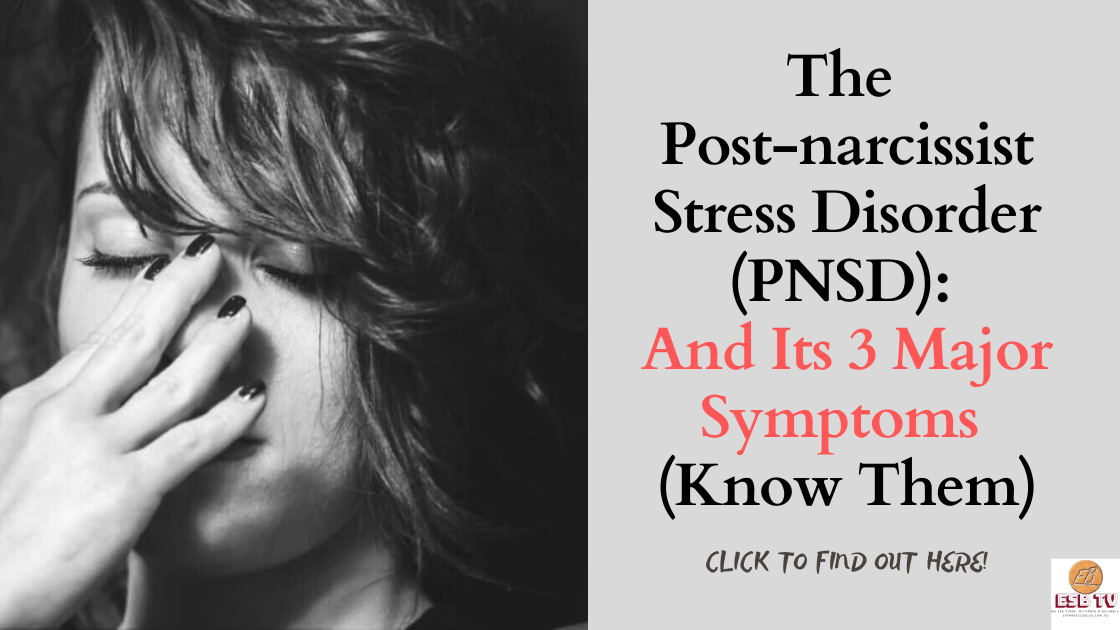These are What Will Happen To You If You Have Once Shared Your Life With A Narcissist. To anyone that has experienced the acts of a narcissist, s-he is likely to suffer from an anxiety disorder known as N-POSTTRAUMATIC STRESS DISORDER (the ‘N’ carries the name ‘narcissist’); It happens when someone has associated with serious traumatic events from a narcissist and characterized by such symptoms as reliving the trauma in dreams, numbness and lack of involvement with reality, or recurrent thoughts and images.
Generally, it is widely recognised as Posttraumatic stress disorder. But ‘N’ is attached intentionally to portrays the credibility of a narcissist in it (that is, it is solely caused by narcissists).

People that have shared their lives with a narcissist have to undergo physiotherapy treatments to get over the symptoms that comes with PTSD. During this correction process, it is pertinent to know that it takes some, longer duration while some get over it in just duration. What sets them apart here is ‘Attitude Adjustment’ (letting go of the narcissist and his or her narcissism), and getting your mind ready for total healing.
This time of adjustment may be difficult than what you think, and takes you more than you bargained for. But you must be persistent in building a wall between you and the experiences because you might find yourself in the middle of it again, even the narcissist’s choice of perfume you perceive from a stranger back might trigger the PTSD. Be it the narcissist’s choice of food, choice of book, choice of songs, choice of color- all these have the capacity to break the wall you tried building between you and the experiences. So you see persistency and being intentional in building the wall is important.
N-POSTTRAUMATIC STRESS DISORDER’S BIG THREE SIGNS OUT OF OTHERS ARE:
1. Numbness and lack of involvement with reality.
2. Recurrent thoughts and images.
1. How can we explain ‘numbness and lack of involvement with reality’?
a. When there is a partial or total lack of sensation in a part of the body, better still, it could be the trait of lacking enthusiasm for or interest in things generally –be it love, life and other activities.
b. Difficulty to start a new life.
c. Finding it hard to stop thinking about the narcissist.
d. Taking no interests in what was exciting to you before the incidence.
e. Lacking focus and concentration.
f. No reason to live another day.
g. Taking sedatives to feel alright.
2. How can we explain ‘recurrent thoughts and images’?
a. Relieving the trauma in dreams and moments.
b. Losing control of yourself.
c. Suffering from low self-esteem.
3. How can we explain ‘unstable in emotions’?
a. Panic attacks.
b. Hyper-vigilant.
c. Casting doubts on people’s acts and intentions.
d. Trouble sleeping.
e. Losing self-security (relying on others and things to keep body and soul together: sedative pills, smoking, casual sex with strangers.)
By Ola Moses



This is a good and accurate summary of the harm that narcissists such as Harri Mutka do to women.
This is a good and accurate summary of the harm that narcissists such as Harri Mutka do to women.